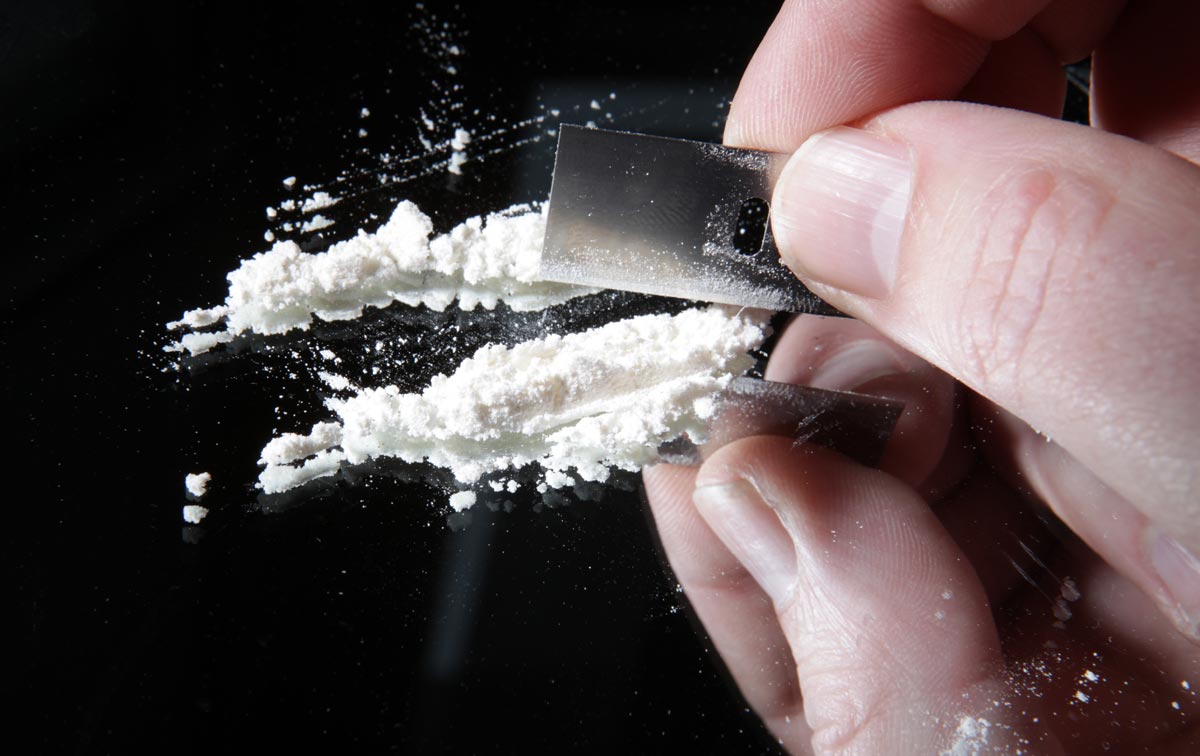
According to the National Survey on Drug Use and Health, some 478,000 new people try using cocaine each year. Most of those go on to be occasional users, turning to cocaine for social use and parties.
Cocaine is often seen as relatively safe, because of its light addiction profile and the fact that millions of people use it. But, this drug is listed as a Schedule II Drug under the Controlled Substances Act because it can be dangerous. Yet, about 5 million Americans, or 2% of the population, use cocaine.Those dangers include addiction, health risks, and mental health risks – each of which can vary significantly depending on the individual, their genetics, their metabolism, and their existing health.
Cocaine’s euphoric effects on the body can quickly turn to paranoia, anxiety, insomnia, sleeplessness, and heart problems –but few people talk about that when initiating use. Cocaine can kill you, and it will always be dangerous to use.
How Can Cocaine Kill You
Cocaine is a powerful stimulant that takes just a few seconds to affect your brain. The drug also affects nearly every part of your body, from dopamine production to the amount of air in the cellular walls of the heart. This can result in significant side-effects to the body.
Heart Attack
Cocaine usage elevates the heart rate and blood pressure, which puts stress on the heart. If you have a weak heart, even a small amount of cocaine can elevate your heart to the point of causing too much stress. Long-term cocaine usage can also cause the heart problems that result in having a heart attack after a small amount of cocaine usage. In addition, cocaine usage patterns result in continuing and ongoing stress to the heart. For example, short-term effects of cocaine mean that people are very likely to keep using throughout the night. This means the heart is under a large amount of stress for a longer amount of time, with continuous spikes of stress – rather than a single spike and then a plateau. This means you’re more likely to experience heart abnormalities with cocaine than with a stimulant that you only take once. In addition, because cocaine has a half life of about 60 minutes, people typically increase the amount of cocaine in their system with each follow-up dose, even if they don’t intend to.
Stroke
Cocaine is a significant contributor to stroke, although the mechanism of how is poorly understood. However, it causes increased blood pressure and stimulates the central nervous system. This can result in a stroke which may result in partial paralysis or even death.
Overdose
Cocaine was involved in 1 in 5 overdose deaths in 2019. While it pales in comparison to heavier drugs like fentanyl, cocaine can be significantly dangerous. In fact, some 16,000 Americans died in 2019 with cocaine in their system. Often, those cocaine-related overdoses included either very large amounts of cocaine or a mixture of cocaine and another drug. Of these, cocaine and alcohol is the most common, as both of these drugs are common. However, mixing cocaine with another drug can increase the potency and the bad side effects of each, meaning it’s much more likely to suffer an overdose.
Get Your Questions Answered
Our expert & caring staff on site are available 24/7. Call us today.
Toxicity or Poisoning
happens when too much cocaine collects in the heart and cardiovascular system. The result is quite-often sudden death. This happens because cocaine permeates the membrane tissues of the cardiovascular system, forcing oxygen out. If you use too much, it can result in reduced oxygen in the heart and sudden death. Most importantly, there is not a way to actually predict that happening before it does.
However, cocaine can also cause more traditional toxicity and poisoning if it is cut with toxic material. For example, some dealers will cut cocaine with baby powder or talc.

Consuming small quantities of this won’t really harm you. However, in larger doses these and other substances can cause significant toxicity, which can result in shock and even poisoning.
Other Dangers of Cocaine
Cocaine can be significantly dangerous, even when it doesn’t kill you. This means it’s important to be careful with cocaine even in small doses. In addition, cocaine can cause significant and lasting damage to your mental and physical health, which can decrease your quality of life.
Addiction
An estimated 1.4 million people or almost 30% of all cocaine users have a cocaine use disorder. This means that they are mentally and physically addicted to the substance, show signs of withdrawal, and show seeking behavior – where they prioritize cocaine over responsibilities, family, friends, and other things they care about. That behavioral addiction often requires significant therapy intervention to treat and if left alone, can mean years of spiraling substance abuse.
Paranoia and Anxiety
Cocaine usage affects dopamine reuptake in the brain. This often means that dopamine production raises significantly in the short term and the body responds to this by producing less dopamine. As a result, long-term users may start to experience side-effects of anxiety, paranoia, anxiety attacks, and even panic attacks. These symptoms are often a result of chemistry changes in the brain, meaning they can be persistent and can last for years or permanently, even if you quit using cocaine.
Cardiac Complications
Cocaine usage can result in long-term side-effects and damage to the heart. Here, common cardiac complications include arrhythmia, acute myocardial infarction, cardiomyopathy, and coronary artery disease. Each of these diseases is not fatal on its own. However, they do increase chance of early death, decrease quality of life, and increase need for medical care over your lifetime. In addition, they increase the risks of further cocaine usage, because they weaken your heart, meaning you’re more likely to have heart problems.
Getting Help
Cocaine is never safe to use recreationally. The drug causes short-term euphoria and can make you feel good, energetic, and even powerful. Yet, it causes physical harm to your body, increases your risk of death, increases your risk of mental and physical health problems, and decreases your quality of life. If you are using anyway, you are putting yourself at risk, and knowingly. That often means you can benefit from therapy and help getting off the drug, treating the underlying reasons behind substance abuse, so you can recover and get your life back.
If you or your loved-one struggles from alcoholism or other substance abuse please contact us today and speak with one of our experienced and professional intake advisors about our detox, partial hospitalization, and residential treatment programs. 10 Acre Ranch also has specialty tracks like our pet friendly drug rehab and couples substance abuse treatment programs. We’re here to help you recover.






